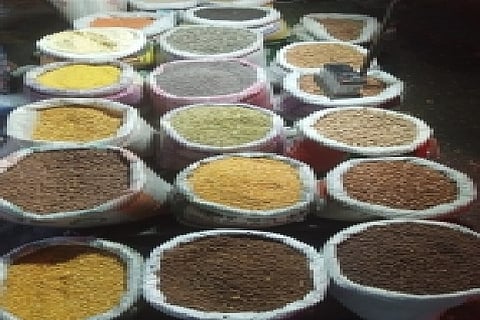

New Delhi
The Centre has extended the ease in quantitative import restrictions policy for pulses such as tur, urad and moong till March 2022.
Earlier, only tur and urad were under the 'free' category, which was supposed to be over by December 31, an industry insider said.
The move entails that 'bill of lading' or 'lorry receipts' from the originating countries need to be obtained on or before March 31, 2022, and the cargoes should reach Indian ports by June 30, 2022, the Ministry of Commerce and Industry said in a notification.
The Centre's move is seen as an attempt to stem rising food inflation in the country.
"The move shall bring stability to the trade and provide continuity of shipments, thereby ensuring stability of prices, both at the place of origin and within India. The trade in Myanmar is highly appreciative of the pragmatic trade policies being adopted by the Indian authorities," said Vatsal Lilani, President at Overseas Agro Traders Association, Myanmar.
Myanmar and Tanzania are two major suppliers of pulses to India.
"Tanzania is Africa's top pulses' exporter to India and only comes third – behind Canada and Myanmar – globally. It has always been consistent in supplying the world's leading pulses consumers with products of good quality for years now," said Zirack Andrew, national coordinator at Tanzania Pulses Network.
"This move will help restore the fading confidence in Tanzania's exporters in doing business with India and wash away thoughts of abandoning the country in favour of emerging markets in the Middle East, South Africa, and Singapore. Fairly speaking, it's long overdue."
Even though India is a major producer of pulses, its domestic consumption outstrips the production, which pushes the country to import such commodities from other nations.
To check inflationary pressure, the Centre has also reduced import duty on refined palm oil, extended ‘free' import policy for three variants of palm oil, and banned seven agri commodities from exchange trading.
According to Bimal Kothari, Vice Chairman, India Pulses and Grains Association (IPGA): "When comparing the prices of pulses to the price of oil, the former have remained relatively stable over the last three to four months. Pulses have not seen a significant increase in their prices. Chana is being sold for lower than MSP whereas tur and urad are being sold at MSP, so prices of pulses aren't increasing.
"Tur harvesting has already been done in many places and is still in progress in some others. The late rains in the southern states may have caused some damage. In the next three months, however, tur's availability on the international market will be limited."
Visit news.dtnext.in to explore our interactive epaper!
Download the DT Next app for more exciting features!
Click here for iOS
Click here for Android